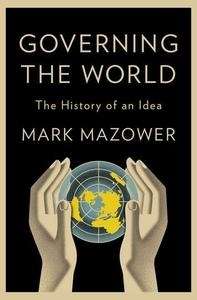Governing the World
The History of an Idea

Editorial Penguin USA
Fecha de edición septiembre 2012 · Edición nº 1
Idioma español
EAN 9781594203497
416 páginas
Libro
encuadernado en tapa dura
Resumen del libro
A history of the project of world government, from the first post-Napoleonic visions of the brotherhood of man to the current crisis of global finance
The Napoleonic Wars showed Europe what sort of damage warring states could do. But how could sovereign nations be made to share power and learn to look beyond their own narrow interests? The old monarchs had one idea. Mazzini and the partisans of nationalist democracy had another, and so did Marx and the radical Left.
It is an argument that has raged for two hundred years now, and Mark Mazower tells its history enthrallingly in Governing the World. With each era, the stakes have grown higher as the world has grown smaller and the potential rewards to cooperation and damage from conflict have increased.
As Mark Mazower shows us, each age's dominant power has set the tune, and for nearly a century that tune has been sung in English. He begins with Napoleon's defeat, in 1815, when England, Russia, Austria, and Prussia formed the Concert of Europe. Against this, there emerged many of the ideas that would shape the international institutions of the twentieth century liberal nationalism, communism, the expertise of the scientist and the professional international lawyers. Mazower traces these ideas into the Great War through to the League of Nations. He explains how the League collapsed when confronted by the atrocities of the Third Reich, and how a more hard-nosed approach to international governance emerged in its wake.
The United Nations appeared in the aftermath of Pearl Harbor, and a war-fighting alliance led by Great Britain and the United States was ultimately what transformed into an international peacetime organization. Mazower examines the ideas that shaped the UN, the compromises and constraints imposed by the Cold War and its transformation in the high noon of decolonization. The 1970s ushered in a sea change in attitudes to international government through the emergence of a vision of globalized capitalism in the 1970s that marginalized the UN itself and utilized bodies like the World Bank, the International Monetary Fund, and the World Trade Organization the final acts of Anglo- American institution-building.
But the sun is setting on Anglo-American dominance of the world's great international institutions. We are at the end of an era, Mazower explains, and we are passing into a new age of global power relations, a shift whose outcome is still very much in question.
Biografía del autor
Mark Mazower (1958) es un historiador de origen britax{0026} x00301;nico especializado en historia de Europa del Siglo XX. Actualmente es profesor titular en la Universidad de Columbia (Nueva York), donde ademax{0026} x00301;s dirige el Heyman Center for Humanities. Ha ensenx{0026} x00303;ado en Princeton o la Universidad de Sussex entre otras. Su obra ha sido galardonada con numerosos premios internacionales, como el italiano Acqui Storia, el britax{0026} x00301;nico Wolfson Prize for History o el Runciman Prize. Es colaborador habitual en medios como el 'Financial Times', 'The Guardian', 'The New York Times' o 'The Independent'. Sus artix{0026} x00301;culos son traducidos en Espanx{0026} x00303;a de manera habitual por el diario 'El Paix{0026} x00301;s'. 'La Europa negra' probablemente sea su obra max{0026} x00301;s celebrada y, por su tesis central, la max{0026} x00301;s polex{0026} x00301;mica y controvertida.







